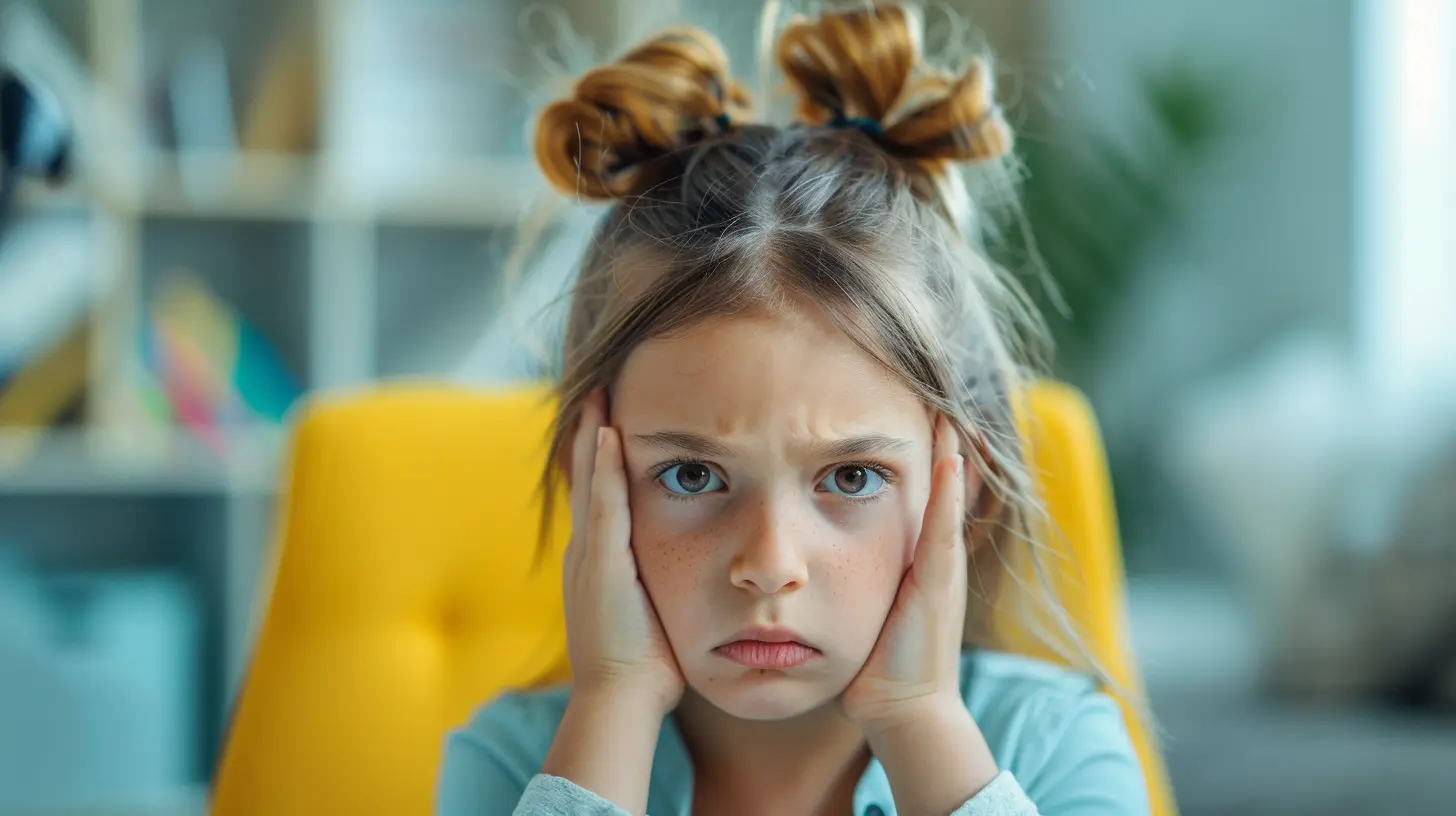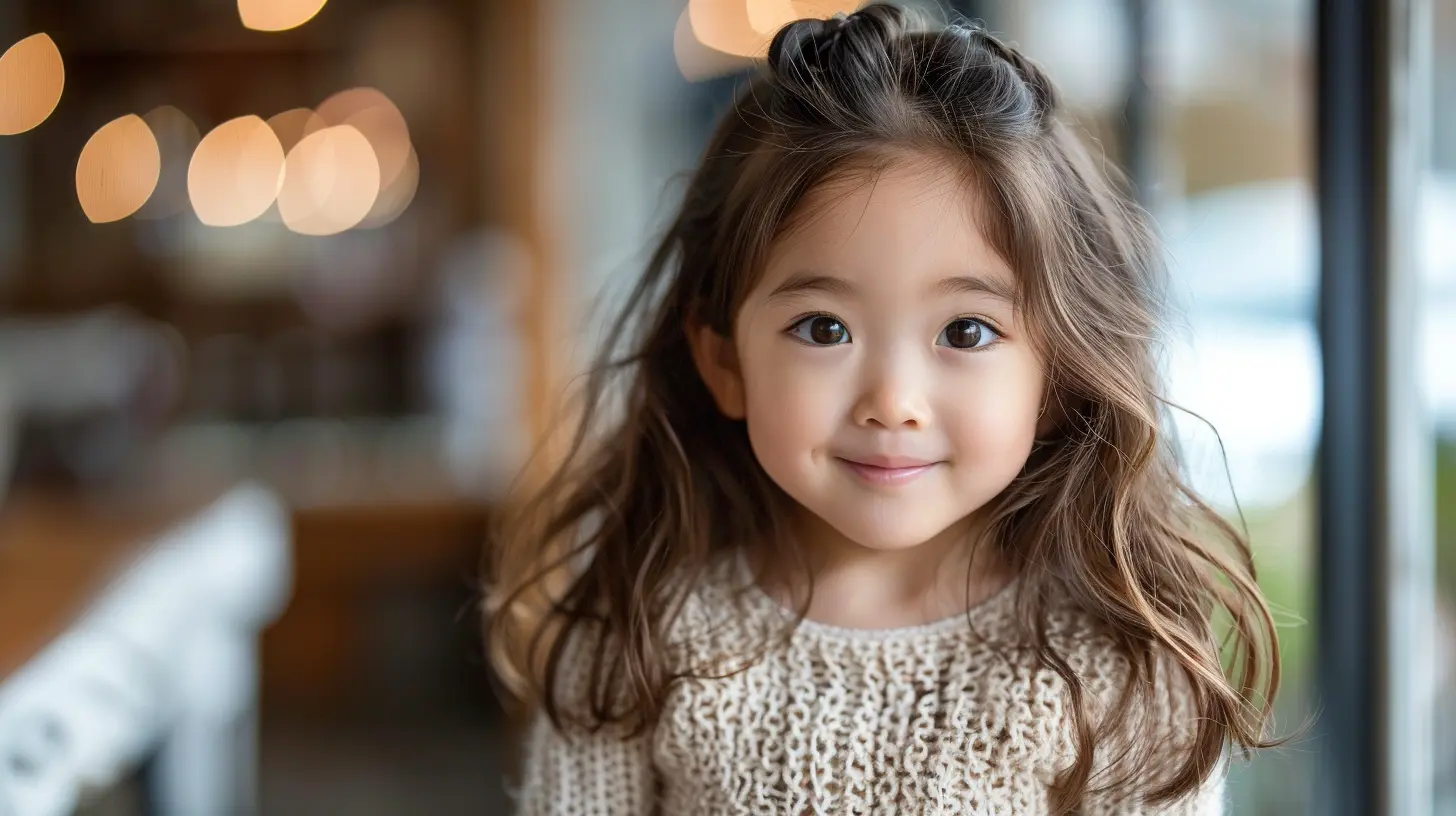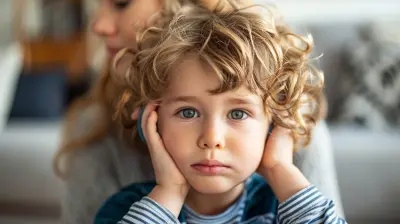Mental Health Matters: Identifying Early Signs of Anxiety in Children
19 May 2025
Anxiety is often thought of as an “adult problem.” But what if I told you that kids—yes, even young children—can experience anxiety just like grown-ups? The tricky part is that they don’t always have the words to express what they’re feeling. Instead, their anxiety sneaks into their behavior, their sleep, and even their physical health.
So, how do you know if your child is dealing with more than just everyday worries? Let’s dive into the subtle (and sometimes surprising) early signs of anxiety in children. 
Is It Just A Phase, Or Something More?
Children go through all sorts of emotional ups and downs—that’s just part of growing up. Nightmares? Normal. A little clinginess? No big deal. But when fear, worry, or nervousness start interfering with daily life, it might be time to take a closer look.Anxiety in kids doesn’t always show up as you’d expect. They might not say, “I feel anxious.” Instead, they may complain about a tummy ache before school, refuse to sleep alone, or have sudden meltdowns over what seems like nothing.
So, where’s the line between typical childhood worries and something more serious? Recognizing the early signs is key. 
Early Signs of Anxiety in Children
Anxiety isn’t always loud and obvious. It can creep in quietly, masked behind behavior changes, physical symptoms, and even perfectionism. Let’s break down these early signs:1. Physical Complaints Without A Clear Cause
Does your child frequently complain about stomach aches, headaches, dizziness, or feeling “sick,” especially before school or social events? Anxiety often manifests physically in children because they don’t always have the words to express their emotional distress. Their bodies speak for them instead.2. Sleep Struggles and Nightmares
Difficulty falling asleep? Waking up frequently? Vivid nightmares? When a child’s mind is in overdrive with worry, bedtime becomes a battlefield. They might need extra reassurance, keep coming to your room, or insist that they can't sleep without you.3. Excessive Clinginess and Separation Anxiety
A little clinginess is normal, especially in younger children. But if your child is excessively attached, refuses to be away from you, or panics over minor separations (like going to school or a sleepover), it could be a red flag for anxiety.4. Avoiding Certain Places, People, or Situations
Does your child suddenly refuse to go to school? Do they dodge birthday parties, sports, or even family gatherings? Avoidance is a classic anxiety response. If they’re making excuses to stay away from certain situations, it may be because those scenarios trigger their fears.5. Perfectionism and Fear of Failure
Some kids try to control their anxiety by aiming for perfection. If they constantly fear making mistakes, refuse to attempt new things, or become extremely upset over small failures, anxiety might be at play.6. Emotional Outbursts and Irritability
Anxiety doesn’t always look like fear—it can also come out as anger, frustration, or sudden emotional meltdowns. If your child frequently lashes out, becomes overly irritable, or struggles to regulate emotions, their anxiety may be bubbling under the surface.7. Repetitive Behaviors or Rituals
Some kids develop small "rituals" to manage their anxiety, like triple-checking that the door is locked, excessively washing their hands, or repeating certain phrases. While occasional habits are common, repetitive behaviors rooted in fear may signal something deeper.
What Causes Anxiety in Kids?
Anxiety doesn’t come out of nowhere. It’s usually a mix of genetics, environment, and life experiences. Here are some common triggers:- Family History: If anxiety runs in the family, children may be more prone to developing it.
- Big Life Changes: Moving, divorce, a new sibling, or starting a new school can be overwhelming.
- High Expectations: Pressure to perform academically, socially, or in extracurricular activities can fuel perfectionist tendencies.
- Scary Events or Trauma: A past traumatic experience (even something as simple as getting lost in a store) can leave lasting fears.
- An Overloaded Schedule: A child constantly shuffling between school, homework, and after-school activities may feel chronically stressed. 
How Parents Can Help Their Anxious Child
If you’ve recognized some of these signs in your child, don’t panic. Anxiety is manageable, and early intervention can make a huge difference. Here’s what you can do:1. Acknowledge Their Feelings (Don't Dismiss Them!)
Saying, “Oh, there’s nothing to worry about,” won’t make anxiety disappear. Instead, validate your child's emotions by saying things like, “I can see that this is really worrying you. Let’s talk about it.”2. Encourage Open Conversations
Create a safe space where your child feels comfortable discussing their fears. Ask open-ended questions like, “What’s on your mind today?” instead of a simple, “Are you okay?”3. Teach Calm-Down Strategies
Deep breathing, mindfulness, and progressive muscle relaxation can help kids manage anxiety in the moment. Try practicing belly breathing together—inhale slowly for four seconds, hold for four, and exhale for four.4. Gradual Exposure to Fears
Avoiding anxiety triggers can actually make things worse in the long run. Instead, help your child face their fears in small steps. For example, if they’re afraid of sleeping alone, start by sitting with them for part of the night, then gradually reduce the time over several days.5. Establish Predictable Routines
Children thrive on routine. A structured daily schedule (with regular meals, homework time, and bedtime) can reduce uncertainty and help them feel more secure.6. Be a Calm and Reassuring Presence
Children pick up on anxiety from parents. If you’re stressed or anxious yourself, they’ll sense it. Model calm behavior, show them how to handle stress in a healthy way, and remind them that they are safe and loved.7. Know When to Seek Professional Help
If your child’s anxiety is interfering with their daily life—causing school refusal, extreme distress, or physical health issues—it may be time to seek help from a therapist or counselor. Early intervention can prevent anxiety from escalating into larger problems.Final Thoughts: Trust Your Parental Instincts
At the end of the day, no one knows your child better than you do. If something feels off, trust your gut. Anxiety might not always be obvious, but by staying observant and responsive, you can help your child navigate their emotions in a healthy way.Raising an anxious child can be challenging, but remember—you’re not alone. With patience, support, and the right tools, your child can learn to manage anxiety and grow up feeling safe, confident, and emotionally resilient.
all images in this post were generated using AI tools
Category:
Childrens HealthAuthor:

Kelly Snow
Discussion
rate this article
3 comments
Foster Lawson
Oh great, another article reminding us that our kids are secretly anxious mini-adults. Just what I needed—more reasons to worry! Thanks, parenting!
June 1, 2025 at 4:55 AM

Kelly Snow
I understand your frustration! My goal is to empower parents with knowledge to help support their kids rather than add to your worries. Awareness can be the first step in fostering a healthier environment for our children.
Blaine Lawrence
Great insights! Early awareness can truly make a difference.
May 28, 2025 at 3:25 AM

Kelly Snow
Thank you! I'm glad you found the insights valuable. Early awareness is indeed crucial for supporting children's mental health.
Tracie Ellison
Thank you for highlighting such an important topic! Recognizing early signs of anxiety in our children can make a world of difference. Empowering ourselves with knowledge not only supports our kids but also fosters a nurturing environment where they can thrive. Together, we can build resilient futures!
May 22, 2025 at 2:30 AM

Kelly Snow
Thank you for your thoughtful comment! I'm glad you found the topic important. Empowering ourselves and supporting our children is key to fostering resilience.



